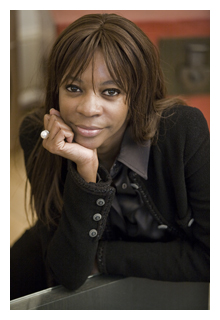Dambisa Moyo

She was born in Zambia, educated at Harvard and Oxford, and she worked for Goldman Sachs and The World Bank. And now she believes that it’s high time to cut off aid to Africa – within 5 years. I recently listened to Moyo’s appearance on NPR’s On Point with Tom Ashbrook. Her ideas are radical but they make perfect sense to me. Here are some points I picked up from the show:
- Most current aid to Africa is open-ended and without conditions – leads to indefinite dependence on foreign governments
- Only 20% of aid money actually gets to the intended recipients, due to corruption and inefficiencies in distribution.
- African governments are not accountable to Africans, but to non-governmental organizations (NGOs) and foreign governments.
- Total foreign aid since 1960 has reached $1 trillion.
- African governments must provide infrastructure, education, health care – reliance on foreign governments to provide these services will at the same time damage the long-term ability of African governments to do the same.
- Foreign aid has some benefits when it comes to disease treatment (malaria, AIDS/HIV), but it does not produce JOBS, which are the essential component to long-term economic development.
- Foreign aid mostly creates jobs for westerners, but not for Africans.
- Free cash disincentives Afircans to work and produce, and for governments to take responsibility.
- We know what works: India, Chile, Botswana, China, South Africa – these countries did not rely heavily on foreign aid but rather had accountable governments which embraces free market principles.
- No country in the history of the world has achieved long-term economic development by relying on the amount of aid that African countries do.
Also she has a new book coming out, entitled Dead Aid: Why Aid Is Not Working and How There Is a Better Way for Africa.
April 14, 2009 1 Comment
Tom Ashbrook – Biased?
I listen to NPR almost every day, and I like the show On Point with Tom Ashbrook. There is usually a good discussion about current events, and there’s a minimum of commercials which is a trademark of NPR. However, Ashbrook’s coverage of the recent financial crisis has been biased in my opinion. He approaches the topic with the presumption that deregulation and capitalism running wild were the root causes of the whole mess, and that the economic experts of the world have reached a unanimous consensus that we need to have more, smarter regulations. It is as if the debate is over, if there ever was one.
As a further example, today Ashbrook had a guest on (I’m not sure who), and they were discussing Bernard Madoff, the investment firm manager who was recently charged with securities fraud which led to the collapse of his $50 billion dollar alleged Ponzi scheme. A caller told Ashbrook that he was an investment manager, and said that his biggest problems were the regulations. He was basically drowning in paperwork and legal overhead, and his business could be much more efficient if there were fewer regulations. Ashbrook replied (I’m paraphrasing from memory),
“Ha, what?! Less regulation?! That doesn’t really jive at all with what we’re seeing here caller!”
The caller continued to explain his point very well. He said that all firms have to be diligent in filing their paperwork, or else the SEC and other overseers will be on them. So they have a big incentive to do those things on time. But the problem is that while the government is checking that you filed your forms, nobody is checking to see whether you are telling the truth on those forms. There is really no way for anyone to know. Hence, everyone is burdened by the regulation overhead, but the liars still lie. I thought it was a really interesting point, but Ashbrook basically laughed him off the phone.
I think part of what happened in the Madoff case is that people believed that as a stock broker/dealer, he was operating under strict regulations, and that made them feel their investments were safe. After all, how can one commit fraud when there’s all that government oversight? Maybe the regulations created a moral hazard.
I guess you would say that Tom Ashbrook was defending a liberal position while I may be defending a conservative, or libertarian, or free-market position. And some may say that I shouldn’t be surprised that NPR is showing favoritism toward the liberal idea. Well, at least they don’t get any government funding.
December 17, 2008 10 Comments